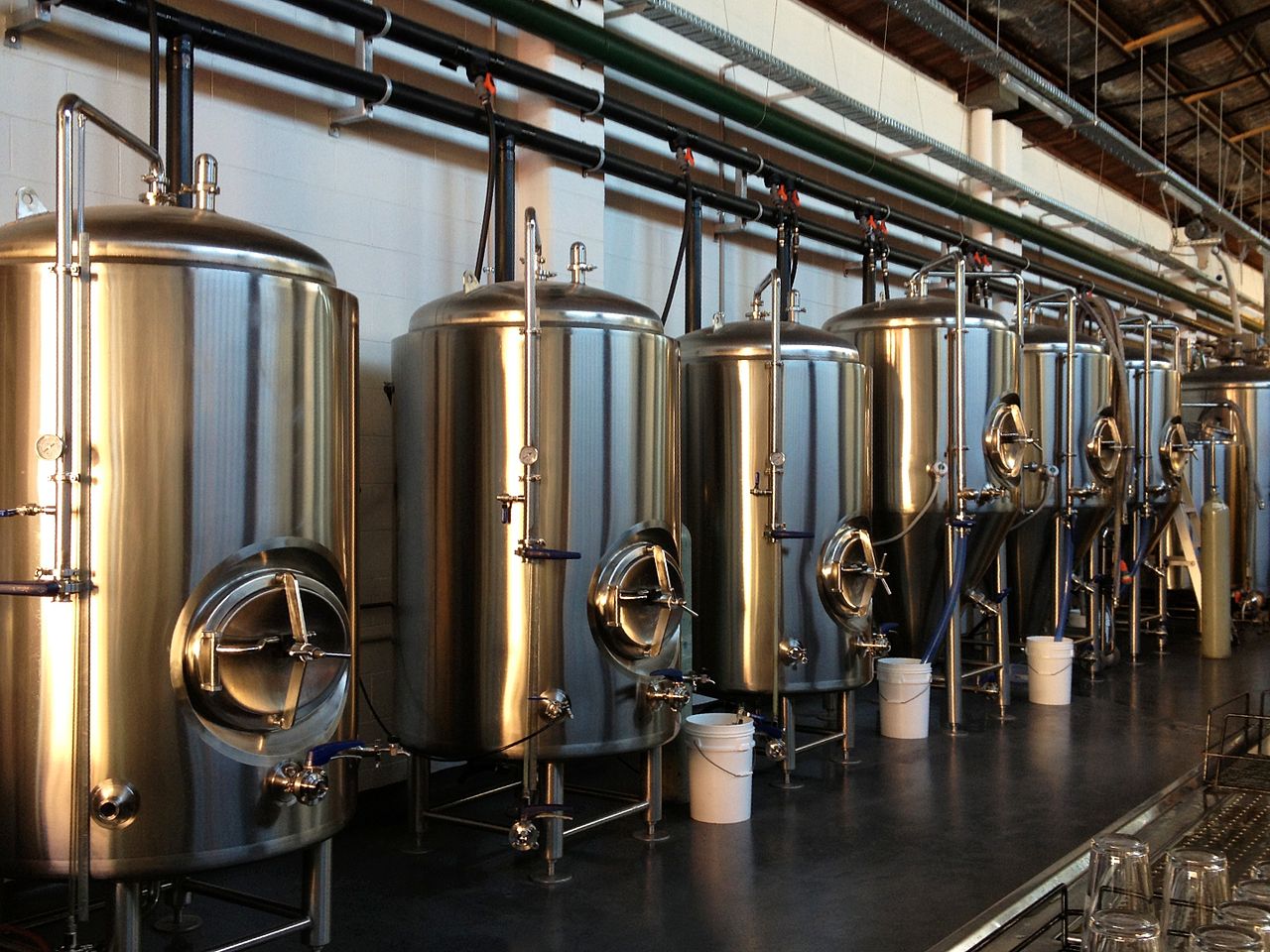The Closure Of Anchor Brewing Company: Impact On The Craft Beer Industry

Table of Contents
Anchor Brewing's Legacy and its Significance
Anchor Brewing, founded in San Francisco in 1896, holds a pivotal position in the history of American craft beer. It wasn't just another brewery; it was a driving force behind the craft beer revolution. Before the explosion of microbreweries, Anchor was a beacon, consistently producing high-quality, unique beers that challenged the established norms of mass-produced lagers.
Key milestones in Anchor's history that cemented its legacy include:
- Pioneering role in the craft beer movement: Anchor's steadfast commitment to quality and innovation helped define what "craft beer" meant, inspiring countless others to follow suit.
- Development of unique beer styles: The brewery's iconic Steam Beer, a unique California Common style, is a testament to its innovative spirit and continues to be a beloved classic.
- Influence on brewery design and brand building: Anchor's brand identity, its commitment to traditional brewing methods, and its unique aesthetic heavily influenced the look and feel of countless craft breweries that came after.
- Impact on consumer perception of craft beer: Anchor helped elevate the perception of craft beer, moving it beyond a niche hobby to a widely appreciated and respected beverage category.
Financial Challenges and the Reasons Behind the Closure
While Anchor Brewing enjoyed a rich history and loyal following, the brewery faced increasing financial challenges in recent years. Several factors contributed to its eventual closure:
- Increased competition from larger breweries: The craft beer market has become increasingly crowded, with larger breweries and multinational corporations encroaching on the market share previously dominated by smaller, independent brewers.
- Rising production costs: Increasing costs of raw materials, labor, and distribution significantly impacted Anchor's profitability.
- Changing consumer preferences: Consumer tastes are constantly evolving, and Anchor may have struggled to adapt to emerging trends and preferences in beer styles and flavors.
- Supply chain disruptions: The global pandemic exacerbated existing supply chain issues, further straining Anchor's resources and profitability.
While precise financial details haven't been fully disclosed, it's clear that a combination of these factors created a perfect storm that ultimately led to the brewery's closure. The lack of profitability and the inability to secure sufficient investment likely played a crucial role.
The Ripple Effect on the Craft Beer Market
The closure of Anchor Brewing has sent ripples throughout the craft beer market. The immediate impact includes job losses for brewery employees and distributors. The long-term effects are more complex and potentially far-reaching:
- Job losses within the industry: The closure resulted in the loss of numerous jobs, directly affecting employees and indirectly impacting related businesses.
- Changes in market share dynamics: Other breweries are now positioned to capture some of Anchor's market share, leading to shifts in the competitive landscape.
- Increased competition among remaining breweries: The remaining breweries face increased pressure to compete for consumers' attention and loyalty in a more consolidated market.
- Potential consolidation within the craft beer sector: Anchor's closure might signal a trend toward consolidation, with larger breweries acquiring smaller ones to increase market share and achieve economies of scale.
The impact extends beyond the purely financial. The loss of such a significant brand could affect consumer sentiment and brand loyalty, potentially leading to further uncertainty in the industry.
Lessons Learned and Future of Craft Beer
The demise of Anchor Brewing serves as a cautionary tale for the craft beer industry. It highlights the importance of:
- Importance of brand diversification: Reliance on a single flagship product can be risky; diversification of offerings is essential for long-term stability.
- Need for efficient cost management: Tight control over production costs and efficient operations are vital for profitability in a competitive market.
- The role of sustainability and ethical sourcing: Consumers increasingly demand sustainable and ethically sourced products, creating both opportunities and challenges for craft brewers.
- Potential for craft beer innovation and growth despite challenges: Despite the challenges, the craft beer industry remains dynamic and innovative. Adaptability, creativity, and a deep understanding of consumer preferences are key to navigating the evolving market.
The future of craft beer hinges on brewers' ability to adapt to changing conditions, embrace innovation, and build strong, resilient businesses.
The End of an Era: Reflecting on the Impact of the Anchor Brewing Company Closure and Looking Ahead
The closure of Anchor Brewing marks the end of an era, a significant loss for the craft beer industry. Its legacy as a pioneer and innovator will undoubtedly endure, but its demise underscores the challenges facing even the most established breweries. The reasons for its closure—increased competition, rising costs, shifting consumer preferences, and supply chain disruptions—serve as a warning to the entire industry. Adaptability, innovation, and financial prudence are more critical than ever. The closure of Anchor Brewing serves as a stark reminder of the industry's volatility. Let's learn from this and support the continued success of the craft beer industry by patronizing our local breweries and staying informed about the challenges and innovations shaping its future. The future of craft beer depends on our collective support and understanding of its complexities. Let's ensure the craft beer survival of independent breweries by embracing and supporting local businesses.

Featured Posts
-
 Can Film Tax Credits Boost Minnesotas Film And Tv Industry
Apr 29, 2025
Can Film Tax Credits Boost Minnesotas Film And Tv Industry
Apr 29, 2025 -
 Is Betting On Natural Disasters Like The Los Angeles Wildfires The New Normal
Apr 29, 2025
Is Betting On Natural Disasters Like The Los Angeles Wildfires The New Normal
Apr 29, 2025 -
 Country Music Legends Wife Denies Son Is Caretaker
Apr 29, 2025
Country Music Legends Wife Denies Son Is Caretaker
Apr 29, 2025 -
 Pacult Freigestellt Jancker Uebernimmt Klagenfurt
Apr 29, 2025
Pacult Freigestellt Jancker Uebernimmt Klagenfurt
Apr 29, 2025 -
 Fn Abwzby Dlyl Shaml Llmsharkyn Walzwar 19 Nwfmbr
Apr 29, 2025
Fn Abwzby Dlyl Shaml Llmsharkyn Walzwar 19 Nwfmbr
Apr 29, 2025
Latest Posts
-
 Netherlands Addresses Asylum Seeker Issues With New Detention Centers And Area Bans
May 12, 2025
Netherlands Addresses Asylum Seeker Issues With New Detention Centers And Area Bans
May 12, 2025 -
 Controversy Erupts Fabers Refusal Of Honours For Coa Volunteers
May 12, 2025
Controversy Erupts Fabers Refusal Of Honours For Coa Volunteers
May 12, 2025 -
 Exploring The Work Of Debbie Elliott
May 12, 2025
Exploring The Work Of Debbie Elliott
May 12, 2025 -
 Stricter Measures Netherlands Implements Low Security Detention And Area Restrictions For Asylum Seekers
May 12, 2025
Stricter Measures Netherlands Implements Low Security Detention And Area Restrictions For Asylum Seekers
May 12, 2025 -
 Understanding Debbie Elliotts Contributions
May 12, 2025
Understanding Debbie Elliotts Contributions
May 12, 2025
